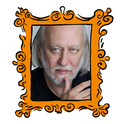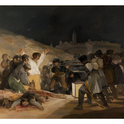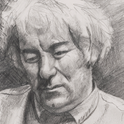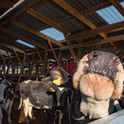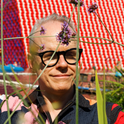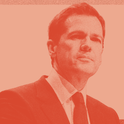The rush of activity which arrested and forced back colonialism on the African continent in the 20th century didn’t just produce hundreds of political leaders, communiqués, bureaucracies, and conferences. It also gave spark to an intellectual renaissance, with scores of novels, plays and stories surging into print. Many people encountered this work in the 1960s through the Heinemann African Writers Series, which Chinua Achebe described as “the umpire’s signal for which African writers had been waiting on the starting line.”
For the first time, wrote Achebe in his essay collection Home & Exile, African readers and writers could read “works by their own writers about their own people” alongside staples of the western canon. That series, founded in 1962 by the young publisher James Currey, brought dozens of new writers to prominence in distinctive orange-spined paperbacks. The publication of Achebe’s novel Things Fall Apart in 1958 had shattered the received wisdom, as Currey writes in his biography, that it was only possible to sell school textbooks in Africa. Heinemann went on to publish major works by Soyinka and Ngugi, amongst many others.
The many notable African writers who published in the early post-independence years form a remarkably sturdy generation. While we mourn many deaths—Tayeb Salih and Léopold Senghor, to name just two—a good number remain with us, including Cheikh Hamidou Kane, Ngugi wa’ Thiong’o, Chinua Achebe, Wole Soyinka, Ama Ata Aidoo and Peter Abrahams (Aidoo, at 72, is the youngest of this group).
Last year saw the publication of new books by perhaps the three most celebrated of this first generation of postcolonial African writers. Chinua Achebe’s There Was a Country and Ngugi wa’ Thiong’o’s In the House of the Interpreter (both political memoirs) were joined, late in the year, by Wole Soyinka’s Of Africa, a book of essays.
Of this generation it is, arguably, the 78-year old Soyinka whose voice remains most prominent in the west. As a student in Britain he gained early recognition for his playwriting. He was employed as a reader by the Royal Court Theatre in London, where one of his plays was performed in 1957, when he was just 23. Having moved back to his native Nigeria, where he was soon arrested for his political outspokenness, Soyinka developed a reputation as a fearless dissident writer. He was imprisoned in 1967 during the Biafra war, penned a number of well-known works in prison, and spent the next decades writing, teaching and editing in Africa, Europe and America. When he won the Nobel Prize in 1986, his reputation in the modern literary canon was cemented.
Given this history, the arrival of Soyinka’s new book, Of Africa—published in a stark red hardback edition by Yale University Press—is an exciting event. There is an expectation that this will be a challenging, perhaps definitive, work of political analysis from one of the continent’s greatest writers.
Sadly, even the most sympathetic reader will struggle to make such a claim for this book. Soyinka begins Of Africa with a question: “What does the continent known as Africa possess that the rest… of the globe does not have already in superabundance?” He does not go on, as we might expect, to explain why we should pose this perplexing question in the first place.
Soyinka’s opening invites many further questions. Does it make sense to think of Africa—or any continent—as having been found like a curio at a flea market, as something that needs to demonstrate its utility in some way? When is it helpful to think in terms of continents and when does such a large-scale view obscure diversity and complexity? How do we balance the disparate (and changing) needs of millions of people and thousands of groups, with the recognition that collective—and indeed, continent-wide—action has inspired so much progressive organising in Africa?
These questions remain unanswered. Instead, through a number of free-associative essays, Soyinka reflects on colonialism, slavery, Sudan, contemporary African politics, spirituality. There are flashes of perceptiveness. Soyinka levels accurate blows at the transformation of colonial boundaries into state borders in Africa, and he is at his best when he draws upon elements of a pan-African philosophy (which was, in many respects, opposed to retaining such borders at all). His description of paternalism, as “a political broth on which Africans have retched for centuries,” is superb.
But this is not nearly as ambitious a work as its title suggests. Often its chapters consist of vague statements encased in turgid prose. Soyinka’s pronouncements, which arrive unladen with footnotes, range from the platitudinous—“Boundaries imply exclusion”—to the baffling. Discussing religion, Soyinka exclaims: “Who knows what might take its place! American football? Videogames, perhaps? Reality shows? Or maybe jogging?”
Reading Of Africa, it is hard to escape the feeling that Soyinka represents that tendency toward self-adulation you so often see in Nobel-winning writers, in which even the most vapid statements are delivered with a patrician solemnity. His denunciation of Omar Bashir’s government and the violence in Darfur is to be expected. But he adds nothing new to a stereotypical analysis which has been the subject of much criticism. He doesn’t engage at all with major scholarship on Darfur like Mahmood Mamdani’s Saviours and Survivors, and (astoundingly) doesn’t even mention South Sudan once in the entire book.
Elsewhere, Soyinka’s search for a definition of Africa’s “true” nature leads him into a heady provincial nativism. On the “so-called Arab spring” he states it “did not commence in the Arab world but on African soil” and “decades before the Tunisian uprising.” Soyinka has spoken: North Africa is not “African soil.”
So what is the “true” Africa? Soyinka, in a stroke of luck, finds it in his own ethnic group, the Yoruba. He spends a great deal of the book explaining why “Orisa worship, the millennia-old religion of the West African Yoruba people, more ancient than Islam or Christianity” can act as a “paradigm for African religions.” Orisa is “never... dogmatic,” “does not hesitate to guide humanity,” is “nonaggressive,” and so on. No one doubts there is much to learn from religious and spiritual systems like Orisa. But there remains some irony in Soyinka’s denunciation of religious fanaticism being followed by a lengthy apologetic of his own adopted religion.
It doesn’t help that his prose at this point becomes parodically Orientalist, whispering of “the secrets of the African continent,” and beckoning towards “that rambling edifice of mystery rooms known as the African continent—it will be decades yet... before she yields up all her secrets.” As if that weren’t enough, in the next chapter we read a long Oprah-ish anecdote about a relation of Soyinka’s being restored to health by traditional Ghanaian healers when western medicine had failed.
Soyinka is right, of course, to emphasise that Africans have agency—that they are not just victims, unable to shape their destiny—and he is often angry for good reasons. But his solution—to draw upon his own idea of African primordial identity and police the boundaries between what is and what is not really African—is feeble. The rich intellectual tradition of pan-Africanism rightly rejected this kind of thinking, which detracted from crucial political realities, the immensity of external exploitation, and the necessity for solidarity amongst the colonised.
Pan-Africanists believe that Africans should collectively organise not due to some uniqueness of being African, but because this is the most effective means by which commonly-held goals can be realised. Even those past thinkers who were more inclined towards a type of literary négritude (in which “Africanness” was celebrated) were emphatic about the complexity of late colonial identity. The Présence Africaine journal, founded in 1947, published dozens of serious and sensitive essays along these lines. To skim through those back issues is to encounter an open discourse about the future we might build in an era where, as the poet Jacques Rabemananjara wrote, “the conversation of peoples is starting again.” Soyinka leads us down a different direction. Fortunately, if we are interested in hearing voices from the continent, his voice is just one amongst many.
There is no "true" Africa
What the Nobel Prize-winning novelist Wole Soyinka gets wrong
February 15, 2013

Photo by Glen Gratty.
